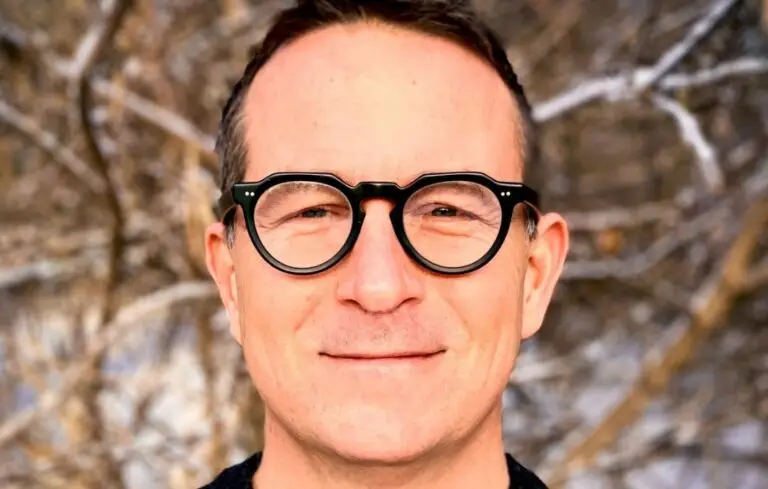I joined Facebook in 2009. I couldn’t resist reconnecting with people from my childhood, grammar and high school, and previous jobs who had become distant memories.
Trends emerged immediately. People were shockingly comfortable in this online environment weighing in with their opinions on current events and political issues. You see, I grew up at a time when politics, religion, and money were off-limits. This is no longer the case. I also observed disdain for the younger generation. In my memory, this has always existed. I remember my grandmother saying often, “I hope I’m dead before this generation takes over.” (She meant my generation!)
What I was surprised to see on Facebook in 2009 is that my age group was now generalizing the younger generations. We are Gen-Xers. Did we forget how the older generations unfairly attacked us? We were labeled as entitled, slothful and unmanageable—“the slacker generation!” I started to realize that maybe these generational generalizations were a product of an aging mind, and I wanted no part of them.
People have always complained about young people
Throughout history, older generations have always criticized and generalized the youth of their time. From Socrates’ famous quote about youth being disrespectful and lacking discipline, to The Daily Mail reporting in 2017 that millennials are lazy and lack discipline, this pattern of generational generalizations has persisted. (Read “People have always whined about young adults. Here’s proof” for more examples.)
It’s time to shift our perspective and embrace the energy and potential younger generations bring to the table. Instead of criticizing and dismissing them, we should guide them with wisdom and support their efforts to create a better future.
One common criticism directed at today’s youth is their attachment to technology and social media. We often hear statements like, “Get off your phones and engage with the real world!” But it’s essential to recognize that these digital natives have grown up in a technologically advanced society. Their familiarity with technology is a valuable asset that can be harnessed for positive change. Through their devices, they have access to vast amounts of information, connect with people from diverse backgrounds, and gain a global perspective. Rather than demonizing screen time, we should appreciate their ability to leverage technology for innovation and social impact.
Today’s youth are wiser, more empathetic
Contrary to the belief that young people lack ambition and altruism, recent studies indicate that Generation Z is one of the most informed, evolved and empathetic generations in history. They care deeply about issues beyond their immediate surroundings and are actively involved in tackling global challenges.
Consider this: In 1951, Time magazine reported that “few youngsters today want to mine diamonds in South Africa, climb Mount Everest, find a cure for cancer, sail around the world, or build an industrial empire.” Conversely, author and entrepreneur Christine Horner commented that young people today will likely be found “busily building homes for the homeless, inventing cancer detection tests, and engineering machinery to clean up our oceans.” Reports from Google and Forbes also also highlight the remarkable achievements and aspirations of today’s youth. This generation has the potential to create substantial positive change if we empower and support their endeavors.
It is also important to note that young people often approach issues with a fresh perspective, unburdened by entrenched political ideologies. They possess an exceptional ability to think creatively and tackle problems from multiple angles. By embracing their innovative ideas, we can foster a culture of collaboration and open-mindedness. Rather than dismissing their viewpoints, we should engage in meaningful conversations that encourage diverse perspectives and respectful debate. This not only benefits the younger generation but also allows us to learn from their insights and adapt our own thinking.
Guiding with wisdom
As older generations, we have a responsibility to guide and support younger generations. We must recognize the value of intergenerational connection and empathy. This involves meeting them where they are, both physically and emotionally, and seeking to understand their experiences and aspirations. By actively engaging with today’s youth, we can provide guidance, share our wisdom, and serve as positive role models. After all, trying to prescribe what they “should” be doing doesn’t benefit anyone. They need our support and mentorship to navigate their own challenges and fulfill their potential.
In addition, we must cultivate an environment that encourages risk-taking and embraces failure as a valuable learning experience. Young people need the freedom to explore different paths and make mistakes along the way. Instead of discouraging them from pursuing their dreams or conforming to societal expectations, we should encourage their entrepreneurial spirit and resilience. By creating a supportive ecosystem that celebrates personal growth, we empower them to find their own unique paths to success.
Prioritizing well-being
Moreover, we must prioritize young people’s holistic well-being. Mental and physical health should be valued as much as academic or professional achievements. Encouraging work-life boundaries, promoting self-care practices, and emphasizing balance can help them lead healthy and fulfilling lives. By modeling these behaviors ourselves, we demonstrate the importance of maintaining overall well-being and show them that success is not solely defined by external accomplishments.
Lastly, fostering a culture of tolerance and acceptance is crucial. We need to encourage open dialogue and respect for differing beliefs and perspectives, even when they challenge ours. Division and negativity hinder progress and common ground. By actively listening to today’s youth, we validate their experiences, build trust, and unveil hidden insights. We create an environment that nurtures their growth and potential. We empower young individuals to express themselves freely, guide them with wisdom, and forge lasting connections. We embark on a journey of understanding, support and collaboration with today’s youth, ensuring a brighter future for all.







